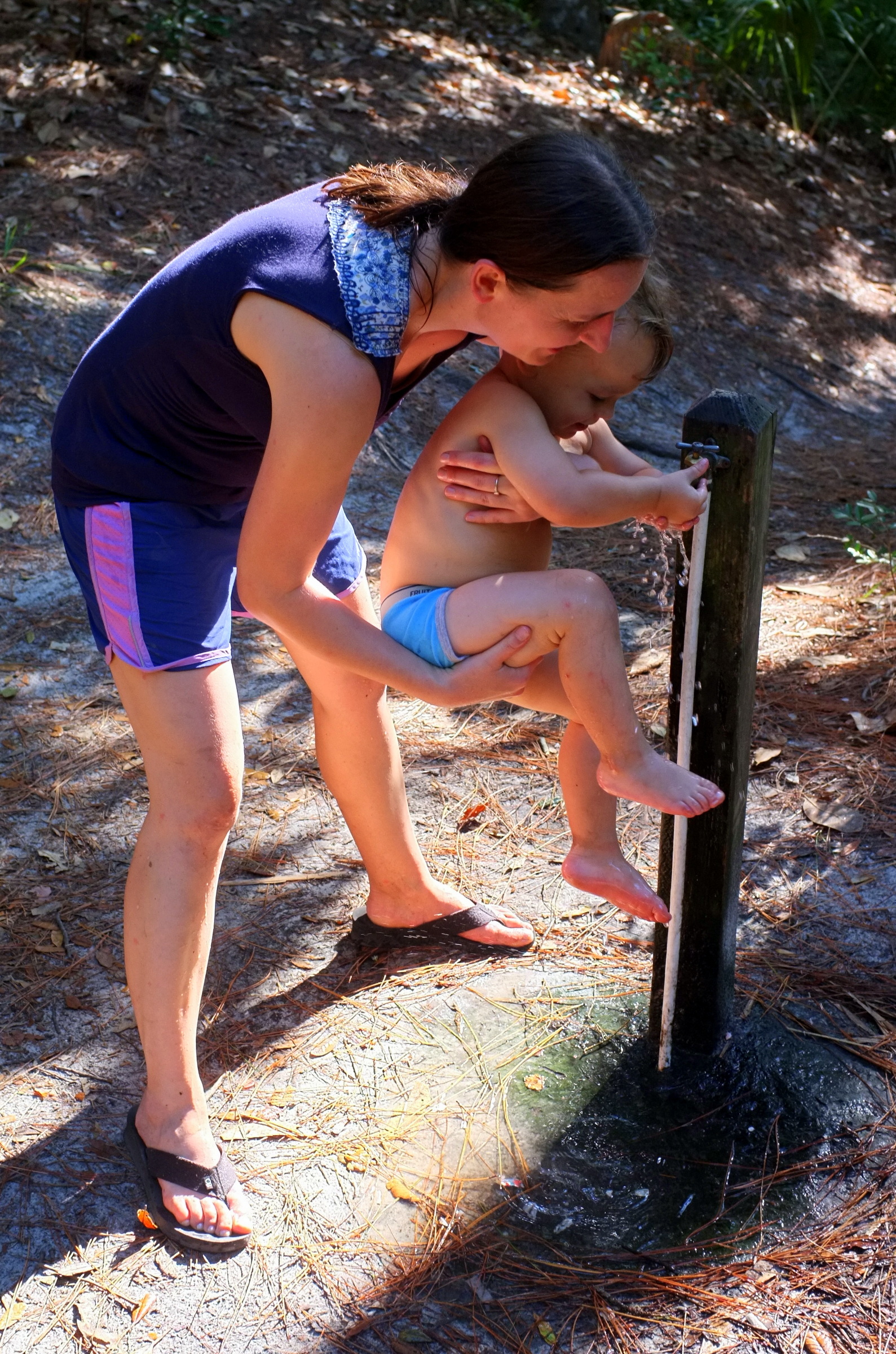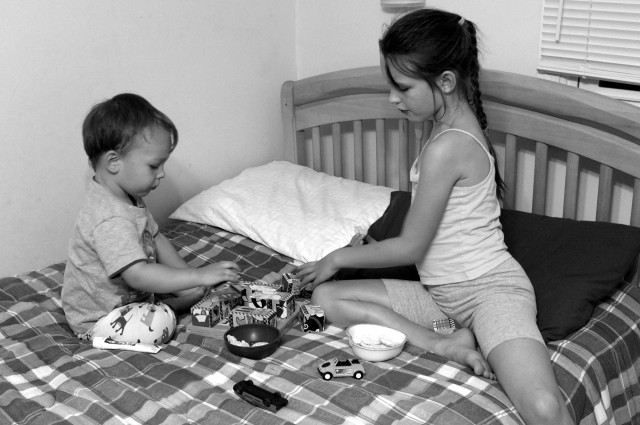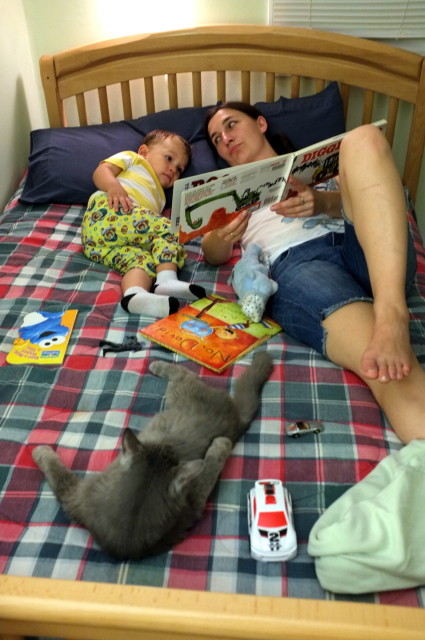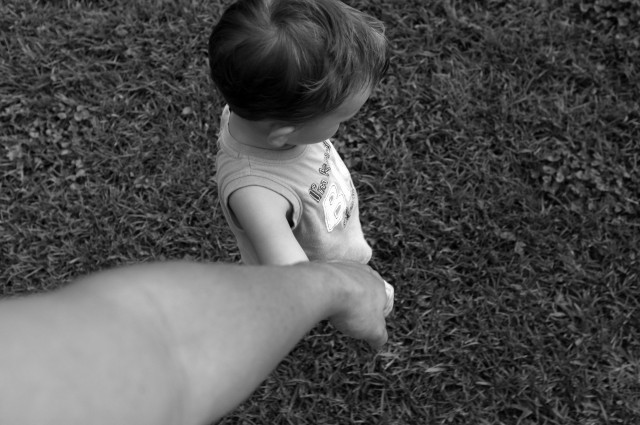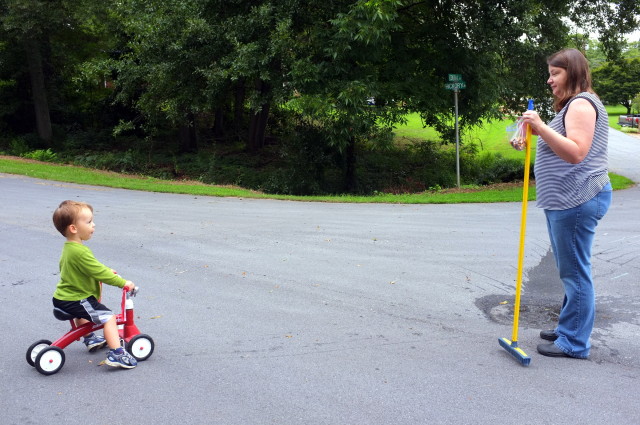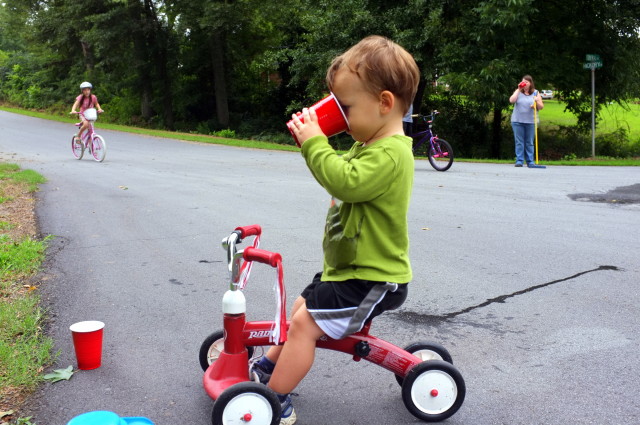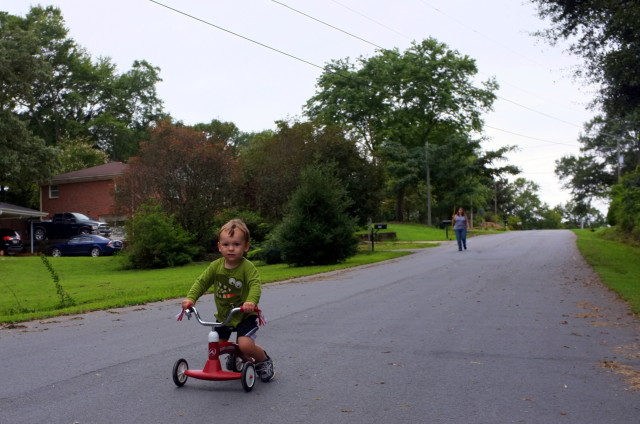Snacks and Puzzles
Lost Cause
Dear Terrence,
I thought today was a lost cause. I thought you guys would never get it all back together. I was convinced that getting you refocused would be all but impossible. After two interruptions like you guys experienced, it would have been difficult for anyone to get back to the task at hand.
First, the fight. If you could call it a fight. I still don’t know why James attacked Bryce, and I don’t know why Bryce just sat there in the desk and took it. Disturbing on so many levels, not the least of which was the entertainment factor it seemed to have for most of you. A young man was getting pummeled, and you guys laughed. Such brutality is so foreign to me that I can only recoil, but you guys find it funny. Or was that laugh something else?
Then there was the verbal altercation with the girls while I walked the two boys down to the grade-level administrator. I know even less about that incident than I do about the fight, but I know they were angry, ready to fight themselves. I saw it in their eyes.
So when I tried to rein you guys in, I was doubtful about the ultimate success. I’ll admit that part of me was convinced class was a wash. But somehow, you guys pulled it together. And I have to say I was impressed. No side conversations about the fights. No comments when the girls came back (well, almost none). Well done. More promise.
With hope,
Your Teacher
Your Daughter
Dear Frank,
The other day I did something I doubt you have ever done: I met your daughter. She’s really something: smart, amusing, sincere, beautiful. Though she’s only thirteen, she’s got a maturity about her that is striking. Sure, she’s an at-risk kid, but the difference is, she knows it. She’s aware of it. And she wants to change it.
You could do a lot to help her, but she doesn’t know where you are. Indeed, she doesn’t know who you are — she told me herself. I didn’t ask. She volunteered the information. (Don’t worry: your daughter is not the only one to share family secrets like that. In fact, she’s not the only one to share that family secret. But that’s a post for politicians and pundits.) You could help her, but instead, you left.
I think of my own children, and I try to imagine leaving them before they even knew me. What kind of a father would I be if I did that? The answer is simple. You know the answer. And statistically speaking, you know the answer on a firsthand basis: I’d venture your dad skipped out on you and gave you the example of how to be a “man” that led you to skipping out on your daughter.
Perhaps it’s for the best. After all, what could someone who doesn’t have the courage to accept the consequences of his actions teach a girl who’s trying to learn how to do just that? You’d probably drag her down, and maybe you knew that, and that’s why you left. But you see, here’s the catch — it’s a real paradox. If you had stuck around and had tried, you’d have been everything she needs. Perfect? No way, but no one is. Still, being a father is just like anything else: the more you do it, the better you get. And it’s not too late to start. Or is it? Would she want you waltzing back into her life? Certainly not: waltzing is not humble. How about contritely contacting her? That might work. Maybe a letter.
Let me start if for you:
Dear Daughter,
I don’t even know your name, and for that I’m ashamed. I have done so wrong by you that it’s hard for me to look myself in the face every morning when I shave. I hate what I’ve done to you, but I want to make it up to you. I don’t know if you want this, though, so I’ll leave it for you to decide. I’ll let you decide all the boundaries, and I’ll keep to those boundaries like they came from the mouth of God. And if you don’t want to meet me, I understand. In your shoes, I might not want to meet me either. Still, I want to apologize for what I did to you, and I want to try, somehow, to make it up to you.
There. Simple. To the point.
Of course, if you don’t even know her name, how could you send it?
Sadly,
Your Daughter’s Teacher
Temptation
In Mass, there are a lot of temptations every Sunday morning. It really begins well before Mass, when as is always the case, we’re running late. My temper flares, and I have to consciously tell myself that barking out orders won’t make L put her shoes on any faster. But once we’re there, the temptations only increase.
Inordinate pride is a big sticking point. I like to say that my children will be well-behaved in Mass because
- they understand the ontological reality of what’s going on there and respect and believe in it;
- I am such an awesome parent that I have trained them like good little monkeys; and
- I don’t want to disrupt anyone else’s experiences in Mass.
In reality, it’s that second one that gets top billing: I’m just embarrassed because my kid isn’t as saintly as that kid, two pews up, just to the right.
Clothing is another area of temptation. Women come to Mass dressed like they’re going out for a night on the town, and men come dressed like they’re going to the beach or for a hike in the mountains. “Can you believe he/she wore that to Mass?” is on the tip of my tongue, and sometimes the temptation is just too great, and I point out to K the fashion offender. “Don’t they know why we come to Mass?” I always finish, then regret that I even brought it up, that I gave into the temptation.
Then of course there are the temptations of distraction:
- “Boy, that lector is really stumbling over that reading. Perhaps he should have reviewed more.”
- “Oh no! She’s singing the responsorial psalm?!”
- “Dear God in heaven, could he distribute communion any slower?”
- “Really? Checking Facebook just after receiving the Eucharist?”
- “Well, if I’d known he was giving the homily, I might have just stayed home.”
- “Why in the world would anyone select that hymn?”
- “Doesn’t he know any better than to wipe his nose with his right hand just before we do the sign of peace?”
- “Cheapskates: they never put anything in the offering basket.”
- “I’m still kneeling here: you should be too so I don’t have your nasty hair in my face.”
- “There is nothing in the missal to indicate that we should all be holding hands during the Our Father! Uggh!”
- “If that kid doesn’t stop putting that kneeler up and down and up and down and up and down, I’m going to…”
- “Dang, if that guy behind me sang any more off key, he’d be singing in a whole different mode.”
- “Wow, that’s a big hat.”
- “Really, only the priest should be praying in the orans position!”
- “That is just the nastiest perfume on the planet. What is it? Eau de Dead Fish?”
- “That’s right — do the Judas Shuffle: receive and leave. There’s piety for you.”
- “You snotty little teenagers: this is the crying room, not the ‘don’t want to sit through Mass and would rather chat it up with my friends’ room.”
Of course in the summer, there’s a whole new batch of temptations, most commonly about clothing selections. It usually goes like this: “He is a grown man, with graying hair and kids who appear college age, and he’s still wearing shorts to Mass? Does he not realize that there comes a time in one’s life when one understands that comfort is not always the be-all, end-all goal in life?” That thought is more often than not amended with, “And he’s wearing flip-flops for heaven’s sake! There’s not a beach within three hours’ drive of here, and even if there were and even if you were going to the beach immediately after Mass, you should be dressed like you’re going to the beach while at Mass especially when you’re a grown man!” Occasionally I can match it with another gripe: “She’s wearing that top to Mass?! Really?” And every now and then, I can tack on one more: “And their teenage daughter is wearing tight short shorts?”
Pride is truly at the heart of all sin.
DNS Woes
Charter prevented me from keeping my streak going. So I’m counting this. So there. (Yes, I could have changed my DNS settings, but I don’t know any off the top of my head, and lacking an internet connection…)
Your Shoes
Dear Terrence,
We had a fire drill this morning, and I knew it was coming — we always know, for the administration sends us emails about them — and yet it wasn’t the disruption of the actual fire drill that I was dreading. I knew it would, of course, break up the flow of a lesson, and it never fails that the class with a high number of Terrences and Teresas is going exceptionally well when a fire drill occurs. There is that to consider. But what I was more concerned about was what would happen when we came back in, because I knew you and most of your classmates would be worried about one thing: your shoes.
I could hear it before we got back to the classroom, thirty-some kids all asking to go to the bathroom to clean the wet grass clippings from their shoes. Instead, I handed out paper towels. I heard a lot of thanks, but it still ate up a lot of class time.
 It was a judgement call, really. I could have simply told everyone to get over it, but I thought I might use the situation to win some points with you guys. Besides, when I heard you say, “Man, my mom paid $140 for these shoes,” I knew that it wouldn’t just blow over. You would spend all your time trying to wipe the grass from your shoes, and you’d likely mutter your displeasure at having to do so, and that would only drag your neighbors into the frustration, and soon the whole class would follow. So the paper towels were preventative.
It was a judgement call, really. I could have simply told everyone to get over it, but I thought I might use the situation to win some points with you guys. Besides, when I heard you say, “Man, my mom paid $140 for these shoes,” I knew that it wouldn’t just blow over. You would spend all your time trying to wipe the grass from your shoes, and you’d likely mutter your displeasure at having to do so, and that would only drag your neighbors into the frustration, and soon the whole class would follow. So the paper towels were preventative.
Still, I’m concerned about your worries: they’re just shoes. Even if they’re a little dirty, they will come clean when you get home. And even if they don’t come clean, even if there’s a bit of green left on your perfectly white basketball shoes, they’re just that, shoes. They’re material objects, tools, bit of rubber and leather designed to protect your feet.
Or are they?
Of course that’s not all they are. To suggest that is to be naive, I understand that perfectly. They represent status. They represent some kind of success. And thus they represent respect to you, which I suppose adds to your sense of self-worth. And that, for me, is the real tragedy. You talk constantly in class. You’ve been to alternative school. You’re wearing a home-arrest ankle bracelet (that began chirping the first day of school, I might add). And yet what you’re most worried about is whether or not your expensive shoes are clean.
Don’t you see your shoes are meaningless? Don’t you understand your self-worth comes from being a child of God, created in God’s image, destined for so much more than hunkering over your over-priced shoes, frantically scrubbing them? Can’t you understand that it’s your heart, your soul, that you need to be worried about? Don’t you worry what path you’re on, what that heart of yours might look like? From here, it looks good. Not perfect, but good. But it’s kind of like your shoes: eventually, it can get so dirty that it’s all but impossible to clean but through grace.
Ever concerned,
Your Dirty-Shoed Teacher
Class and a Half
Dear Terrence,
I’ll be honest: other teachers have looked at you and your class walking down the hall to lunch, a long line that couldn’t be said to snake around corners because that implies a silence you guys still haven’t even on your best days mastered, they’ve looked at you and your class and said to me, “That’s a class and a half.” Or “You really have your hands full.” Or something similar. The implication is that you’re a tough class, and you can be. The implication is that the teacher would not want to change places with me, and she can’t. The implication is that I would probably be glad to be rid of you guys, but I wouldn’t be. True, it’s the beginning of the year, and I might not always be so sure of my commitment to you guys. Come March, come April, and I’ll be tired, not just of you but in general, and there will likely be some days in those warming spring months that make me think, “Man, my life would be a whole lot easier without Terrence and his class.”
It might be easier, it might very well indeed, but it wouldn’t be better. Indeed, it would be worse. You and your class are a challenge, no doubt, but what some don’t understand about me is that I love a challenge. I love a class full of kids that makes other teachers raise their eyebrows and whistle. I love when, minutes after we pass those teachers in the hall, you and your class look like this:
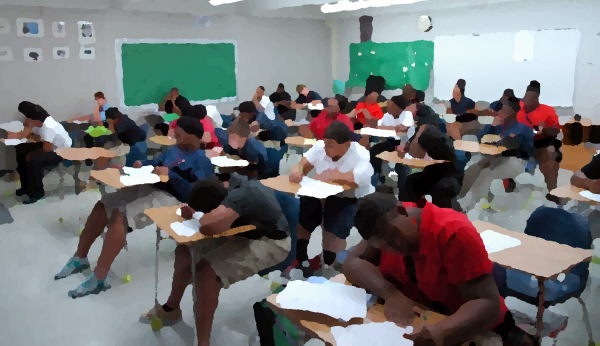
And I love the look in your eyes when I tell you all this.
It’s a good start so far, guys — let’s keep it up!
With joy,
Your Teacher
Our Second Grader
Enter: Terrence and Teresa
Dear Terrence and Teresa,
When I said yesterday that I didn’t know whether I would meet you or not, I wasn’t joking. I can’t always tell immediately who you are. Today, I could. Boy, could I ever. In fact, there was just about a whole room of Terrences and Teresas. In almost every row, there was someone whose body language was screaming, “I have had no success in school, and I find it utterly useless.” Lots of kids saying this with signs, inattentive glazed faces, attempts to engage in side conversation – the usual behaviors that give you guys away.
Teresa, I saw you first. I had my suspicions when you were standing outside my classroom, loudly proclaiming that right now you have “John Doe” for class. A student who uses a teacher’s first name like that is saying a lot by doing so. That was the first clue. It’s hinting at a familiarity that a student will never have with a teacher, and it shows that you sometimes perhaps don’t really think before speaking.
There were a few other behaviors that gave you away, but I knew I’d pegged you when, after class, we were talking and I asked you, “How many referrals did you get last year?” You glanced up at the ceiling, obviously counting. We talked about those referrals, then I stopped you in your tracks by saying, “Did you notice what I asked? I didn’t ask you ‘Did you get any referrals last year?’ but rather ‘How many did you get?’ which is a totally, radically different question.” You looked at me confused. I do this trick every year with someone, and I’m never surprised at your confusion because I’ve come to understand that you sadly you don’t understand how clearly you communicate your past behavior with your present actions. When I offered to help you figure out how to rein in those compulsive behaviors, I wasn’t sure whether your affirmation was heartfelt. We’ll find out. But remember, I’m always willing to help.
Now you, Terrence, didn’t make your grand appearance until the end of the day, after I’d already had you in class. I have to admit: you’d sort of slipped through my radar in class. You didn’t when I saw you walking down the hall, virtually yelling about how much you hated this school and how much everyone is always on your back. Believe me, it was hard to miss you. I don’t often step in between a teacher and a student, but I could tell you needed some help, and I was sure I could get you in a calm place. And after a few moments, we were just talking.
“You look really frustrated,” I said.
“You look like you feel trapped between the demands of two teachers,” I said.
You said a lot, but you did so respectfully. And that gives me a lot of hope, and I hope it does the same for you as well. I’ll check in with you tomorrow, and I’ll try to get you ready for the inevitable, because it’s coming: I have a sense that we’ll develop a great relationship until I have to call you down in my class. It’s happened before, with other Terrences from other years. We’ll cross that bridge when we come to it, but until then, just remember the two simple ideas I shared with you:
- As unfair as it seems, adults can get by with talking to you in a tone of voice that you cannot use with them without getting into serious trouble. But don’t worry too much about that: all of us adults have been through it too. Just remember that’s how the rules work: as long as you’re not trying to play basketball by football rules, you’ll be fine.
- Count to three before you speak. As you’re counting, ask yourself some simple questions: “Do I really need to say this? Is this likely to make the teacher more upset or less?”
I’ve got a thousand and one other tips to help you out, Terrence, and you too, Teresa. We’ll get to those later this year. In the meantime, remember: breath, count, and don’t tackle any point guards.
Pleased to have met you,
Your New Teacher
Meet You Tomorrow
Dear Terrence,
We haven’t met, but by the time twenty four hours pass, we will have met. I might not even realize it yet, for you sometimes manage to keep yourself hidden in the rank and file, just another face in a sea of first day jitters, but more than likely, I’ll have a pretty good idea who you are, and how many of you there are as well.
 Part of me wants to say something like this: It’s all up to you. Whether I meet you or not is a simple question of self control. You could simply blend in, follow the examples you see around you of successful students, and you could just disappear before you even make your entrance. I want to say that’s possible, but I’m not sure a thirteen-year-old has that kind of fortitude. At your age, you tend to make things more complicated than they really are, and combined with your fatalism, that makes it highly unlikely that I won’t meet you. You’ll feel unjustly accused, or you’ll suspect someone across the room is talking about you, or you’ll simply need some attention, or a thousand and one other motivations might click and then we’ll meet.
Part of me wants to say something like this: It’s all up to you. Whether I meet you or not is a simple question of self control. You could simply blend in, follow the examples you see around you of successful students, and you could just disappear before you even make your entrance. I want to say that’s possible, but I’m not sure a thirteen-year-old has that kind of fortitude. At your age, you tend to make things more complicated than they really are, and combined with your fatalism, that makes it highly unlikely that I won’t meet you. You’ll feel unjustly accused, or you’ll suspect someone across the room is talking about you, or you’ll simply need some attention, or a thousand and one other motivations might click and then we’ll meet.
I could actually be on the lookout for you: all I have to do is take my roll sheets down the seventh-grade hall and ask for references. It seems unfair now, and I strenuously avoided any comments from anyone about any of my students, but truth be told, that’s what “real life” — whatever that might be — is like.
All that being said, I have no doubt I’ll figure out who you are fairly quickly. At risk kids wear their cracks on their sleeves even when they think they are being impenetrable, and your body language will likely give you away. So the real question is, what then? When I figure out who you are, when I tell you the jig’s up, what then? Hopefully, I’ll do better with you this year than I did last year, which was better than the year before that. But will it be enough? Can we make it?
We’ll start to see tomorrow.
Concerned as always,
Your Future Teacher
Humans Need Not Apply
Reading in His Room
Updated
It took me four years and two principals, but I finally succeeded in my brilliant plot to take control of and completely redesign the web site for my school. It went live today.
Update
The district decided a year later that WordPress had such significant security issues that they couldn’t continue using it. Funny, Washington Post, Time magazine, and the New York Times all seem to feel differently since they use it, but what do for-profit companies know about using secure software?
Ten Years

On Monday 22 July 2002, while spending the summer in Boston after having relocated to Poland, I wrote in my journal,
I’ve been thinking about K. I’ve been thinking that I should tell her my thoughts first thing when I see her in a little over a month. I’ve been thinking that there’s no way she can say anything but no. I’ve been thinking there’s no way she can say anything but yes. I’ve been thinking it’s the best thing I can do. I’ve been thinking it’s the dumbest thing I can do.
It had all begun several months earlier, when K and I were at a wedding together. One of my former students was marrying her next-door neighbor, and as we’d both volunteered to be photographers as our wedding present, we spent the whole evening more or less together. Some time in the early morning hours, K and I had stepped outside for a bit of fresh air and a break, and our conversation turned to love and perfect matches. “I’d like to meet someone who… someone who…”
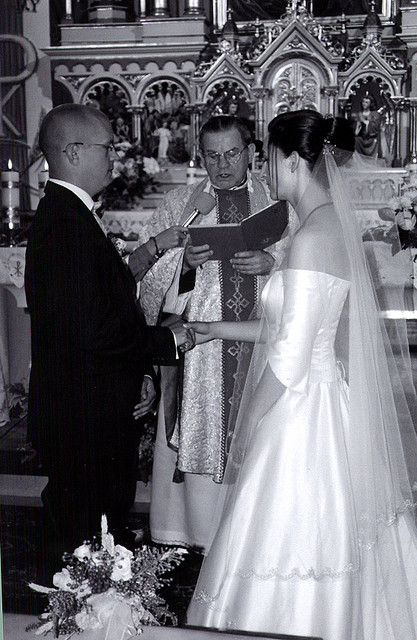
And then the words came out of my mouth, and I thought, “Did I just say that?” Later in my journal, addressing K, I turned to that wedding:
At B’s wedding, we went for a walk around the hotel, and as we talked, I said something that quite surprised even me. “I’d like to meet someone like you,” I said, and immediately you replied, “No, you wouldn’t.” You gave a reason why not – I’m ashamed to say I can’t remember exactly what it was. You tried to say something about some perceived fault – I think you said you were too indecisive or something like that. Honestly, I wasn’t listening to what you said. I was thinking over and over, “Did I just say that?”
“I’d like to meet someone like you”? But I’d already met her, why someone like her?
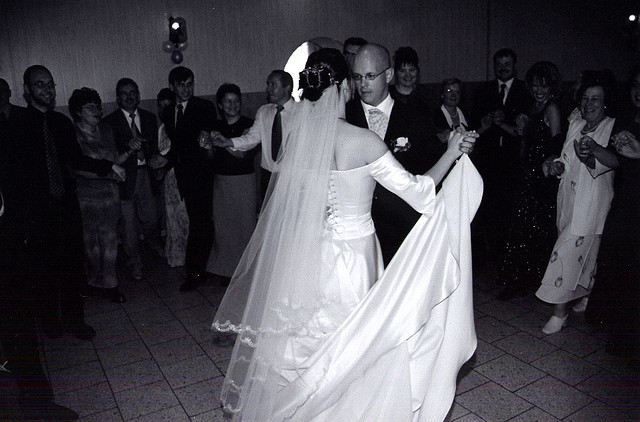
I first met K when she was still in high school — a senior — and I was a teacher in a neighboring village. It was in a bar/disco, and she and two friends walked up to me, the new American in the area (one of three in a ten-mile radius, thanks to the Peace Corps), and said, “We want to practice our English!” We’d become friends quickly, and our conversations were relaxed and pleasant. When she’d moved to Krakow to go to university, I’d visited her a few times, and over the years, I’d come to take our friendship as a given, like she was a sister or something. Romantic attraction never really crossed my mind. The thought of saying, “I’d like to meet someone like you” to someone who could have been — well, it was just unthinkable. Yet I couldn’t think of anything else.
Since then, though, I’ve been thinking about it. Sometimes almost constantly. And the more I think about it, the more it seems to make sense. We both want the most basic things out of life: a family, a house in some quiet place, a secure relationship. “It just makes so much sense,” I say to myself.
Apparently it did make so much sense and continues to make so much sense, for ten years later, nothing has changed: I’m still as in love with her now as then. No, that’s wrong: more so.
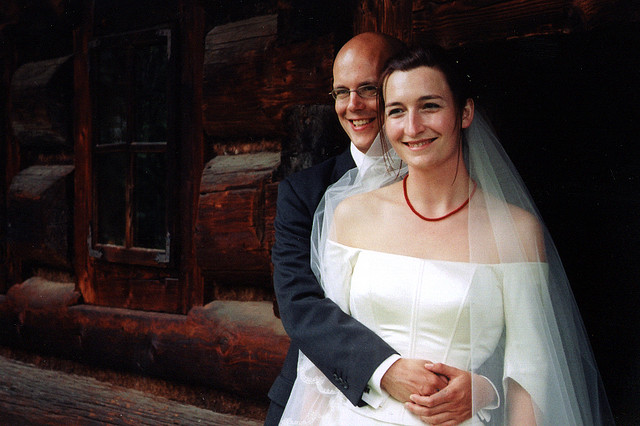
Something has changed; indeed, everything has changed. We’ve brought two children into the world, who have become the source of all our mutual joys and worries. We’ve got a house that adds to those worries, though with a different type of urgency. We’ve moved to an entirely new continent since then. We have new friends, new cars, new everything. Yet only new from the perspective of the journal writer of ten years ago, fretting away about what he was to do about this newly discovered attraction. Now everything is comfortably worn, like slippers that just fit the foot and bend just right. Comfortable. As it should be.
Reset
With me heading back to school for another year on the more difficult side of the desk, E has had to return to daycare. He’s not happy about it. These first two days have been tough on K as she takes him, for he cries when arrives, and today he began the tears even before we left. He’ll get over it, for sure: he’s sociable, and all the teachers say he’s been interacting with the kids well, playing, sharing.
There’s always a bit of guilt we as parents feel as we drop off our child to be cared for by strangers. Yes, E knows them; yes, E loves at least one of them silly. But they’re still strangers. We would not know these people were we not paying them to take care of E while we’re at work. The irony of the modern world: we have all these time saving devices, but we end up just working more. Were it not for our desire — no, our need — to head back to Poland on a regular basis, our desire to make sure our children stay connected to their roots, would K continue working? I know where her heart is.
And yet, doesn’t some good come from this? After all, the Boy is going to have to head to school at some point. This is good preparation for that. L went through the same program and entered kindergarten solidly prepared.
There must be a balance somewhere.
Back Again
We’ll be starting school in a week, meeting (some) students in two days, but today, the faculty gathered to do two things: deal with the myriad administrative announcements and clarifications that make up the bureaucracy of public education, and get caught back up with colleagues.
Last year we faced the stress of a new principal: what will change? What will stay the same? After a year with this man, who has done an excellent job at transforming some problems at our school as well as keeping everyone on their toes, we know that we’re in for more of the same this year. It’s good and bad. I have this lurking fear that changes we know are coming are going to make me let go of some of my most prized pedagogical possessions — lessons, units, techniques that might not work with the new approach (educational fad or not? too early to tell) well be taking as a faculty. Yet change is often good. Still, on this end of it, it’s a bit daunting.
Soup
 L is a picky eater — no doubt about it. Certainly she has some odd tastes, odd by the average American girl standards, I think. Still she can throw us a curve ball, protesting something that seems so logical for her to life. Soup is always a hit with her, but K’s tomato soup from yesterday wasn’t a hit. Not sure why: it used to be a big hit. But it wasn’t. And it wasn’t any better tonight when we finished up the leftovers. She basically ate next to nothing, leaving almost a whole bowl of soup. Granted, she got nothing else for the evening with the understanding that she would have to finish the soup before she could have anything else. Nothing.
L is a picky eater — no doubt about it. Certainly she has some odd tastes, odd by the average American girl standards, I think. Still she can throw us a curve ball, protesting something that seems so logical for her to life. Soup is always a hit with her, but K’s tomato soup from yesterday wasn’t a hit. Not sure why: it used to be a big hit. But it wasn’t. And it wasn’t any better tonight when we finished up the leftovers. She basically ate next to nothing, leaving almost a whole bowl of soup. Granted, she got nothing else for the evening with the understanding that she would have to finish the soup before she could have anything else. Nothing.
Tonight, during prayers, we reached “Give us this day our daily bread,” and I pointed out to L that she would get that soup back at breakfast. “We’re not going to waste food, especially when it’s something that you used to like and eat willingly. She fussed, predictably, but then, thinking about reading the news and the horrors occurring in Syria and Iraq as ISIS sweeps through and imposes strict Islamic law, committing their own brand of ethnic cleansing, I decided to give the Girl a little perspective.
“L, there are children in a country called Iraq now who are literally dying because they don’t get food or water.”
“Why?”
Brief overview appropriate for a seven-year-old, includes terms like “bad people” and oversimplification.
“So these children are so hungry, L, that you could spill that soup on the floor, and they would willingly lap it up like they were animals.”
Silence. Wide eyes.
“You’re lucky: you fuss about being given something you don’t want to eat. These children, if they had the energy to fuss, would fuss about not having anything to eat. At all.”
We’ll see tomorrow what happens. I’m hopeful, but I know how stubborn L is. Besides, that “kids starving in [insert country]” argument seems rarely to work.
Pavement
Just down the street from our house is another street — typical of suburbia, I know. But this street is different. It’s freshly paved, smooth and inviting, and it has just enough of a slope that anyone can enjoy riding up and down it.
And so of late, we’ve taken to doing just that: E on his four-wheel pusher, the Girl on her new bike or her scooter, I on my bike, and usually K on foot.
Occasionally we meet neighbors there, either by arrangement or by accident. Some are more enthusiastic about the activity than others; some ride with more abandon than others; some leave me shaking my head in wonder. Up and down, up and down, races and gentle rides, laughing and literal screaming (“That’s not fair!”) — it becomes a little microcosm of childhood.
I have my own memories like this — summers on bikes, hills that are a pleasure (as well as hills that are hellish), riding with friends.
Seeing my own children follow those same paths brings a smile.










